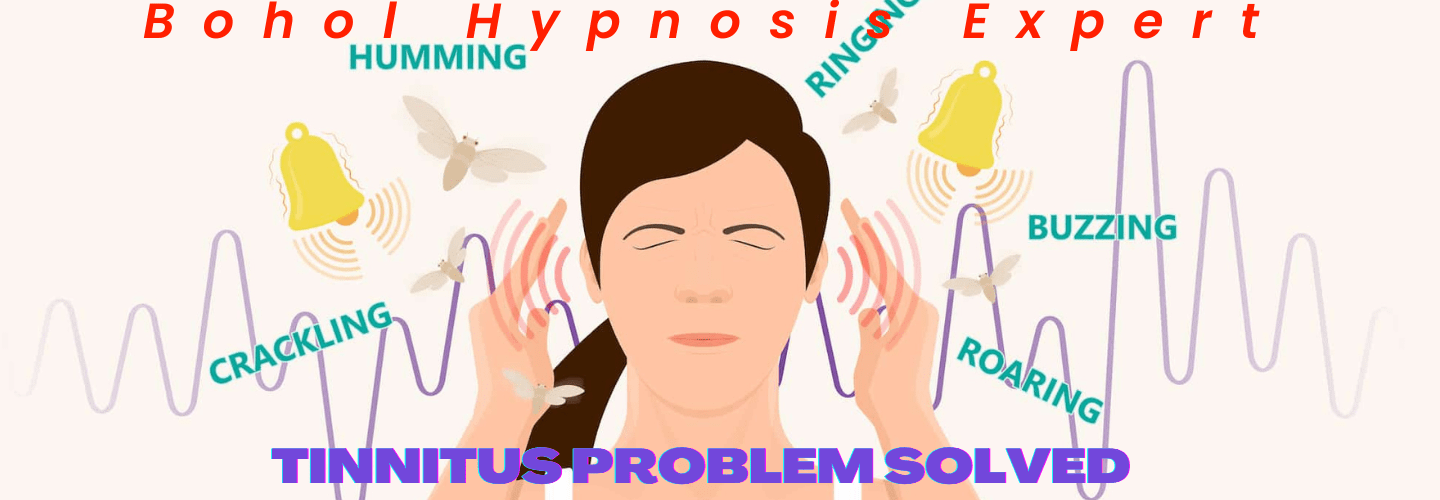
USING HYPNOSIS TO IMPROVE RAPPORT
In the modern world, forming strong relationships can be difficult. Using Hypnosis to improve rapport. The process of getting to know someone and building trust can often be hindered by our own insecurities and barriers. However, there is a way to break through those barriers and create meaningful connections: hypnosis.
Hypnosis has long been a misunderstood tool. It has been used in the past to stop smoking, to reduce stress, and even to help people with phobias, but it has not been widely used to help with something as simple as forming relationships. Hypnosis is actually a powerful tool for improving rapport and building meaningful connections.
The idea of using hypnosis to foster relationships might seem strange at first, but it is an effective way to break through barriers and create meaningful connections. In this article, we’ll explore how hypnosis can help improve rapport and discuss some tips on building meaningful connections with others. We’ll also look at some of the potential risks associated with using hypnosis in this context. Finally, we’ll discuss why it’s important to always practice hypnosis safely and responsibly.
1. What Is Hypnosis?
Hypnosis is a state of focused concentration and relaxation in which a person is more open to suggestion. It is a natural process that can be used to help people focus their attention and achieve a state of relaxation. Hypnosis is not a form of mind control, nor is it a form of unconsciousness. Rather, it is a state of focused concentration in which the person is more open to suggestion.
During hypnosis, the person’s conscious mind is bypassed and the subconscious mind is accessed. In this state, a person can be made more open to suggestion, which can lead to changes in behavior, belief, and attitude. In the context of improving rapport, hypnosis can be used to help create a strong bond between two people by increasing trust, empathy, and understanding.
Hypnosis can also be used to help people access memories, reprogram their beliefs, and reduce stress. It can be used to help people develop new habits, overcome fears, and break unhealthy patterns of behavior. In addition, hypnosis can be used to help people access their creative potential and increase their self-awareness.
In summary, hypnosis is a natural process that can be used to access the subconscious mind and help people achieve a state of relaxation and focused concentration. It can be used to help people create strong bonds, reduce stress, and access their creative potential. Hypnosis can be a powerful tool for improving rapport and helping people reach their full potential.
2. Benefits Of Hypnosis
Hypnosis has the potential to be a powerful tool to improve rapport and help people achieve their goals. It can provide an effective and safe way to access the subconscious mind and alter behavior or beliefs. It can also be used to help people relax and become more open to suggestions.
The first benefit of hypnosis is that it can help people to relax and let go of stress and tension. By allowing them to enter a hypnotic trance, they can become more open and receptive to suggestions and ideas. This, in turn, can lead to improved communication, better understanding, and increased trust. Hypnosis can also be used to help people focus on their goals, visualize success, and develop more positive attitudes.
Another benefit of hypnosis is that it can help people to manage their emotions. By entering a relaxed state, people can become more aware of their emotions and gain insight into why they are feeling a certain way. This can help them to better manage difficult emotions such as anxiety or fear. Hypnosis can also be used to help people overcome certain fears or phobias, or to change unhealthy habits or behaviors.
Finally, hypnosis can be a powerful tool to help people reach their goals. It can help people to focus on their goals and visualize success, as well as to develop new skills and strategies for achieving them. This can help to boost motivation and build self-confidence. Hypnosis can also be used to help people develop better coping skills for dealing with stress or difficult situations.
3. Using Hypnosis For Building Rapport
Hypnosis can be an effective tool for building rapport with someone. It is a way to create a common understanding between the hypnotist and the person they are attempting to build a rapport with. By using hypnosis, the hypnotist is able to establish a connection with the person they are working with and create a trusting atmosphere. This can be beneficial in various settings, such as in therapy or in coaching.
When using hypnosis for building rapport, the hypnotist must first create a safe, relaxed environment. This can be done by providing verbal cues to the person, such as talking in a soothing, calming voice and using comforting hand gestures. The hypnotist will also use visualization techniques to help the person relax and open up to the hypnotic suggestion.
Once the person is in a relaxed state, the hypnotist will then begin to use hypnotic language to build a connection with the person they are trying to build a rapport with. This can include using affirmations, repeating certain phrases, and using suggestions. The hypnotist will also ask the person questions and encourage them to respond in order to build trust and understanding.
By the end of the session, the hypnotist should have successfully established a rapport with the person. This will allow the hypnotist to continue working with the person and further develop the rapport that has been built. Hypnosis can be a powerful tool for developing a sense of empathy and understanding between two people, which can be extremely beneficial when building a rapport.
4. The Power Of Suggestion
The power of suggestion is an important part of using hypnosis to improve rapport. Suggestion is a tool used to lead the unconscious mind to change the way you think, feel, or behave. It is a form of communication that can help to create positive changes in the subconscious mind.
Suggestion is a powerful technique that can help you to achieve the goals of hypnosis, such as improving rapport. Suggestion can be used to suggest new ways of thinking or acting, as well as to reinforce existing beliefs and behaviors. When used correctly, suggestion can help you to establish a strong connection with the person you are trying to build rapport with.
Suggestion can also be used to create positive change in the person you are trying to influence. By suggesting new ways of thinking or acting, you can encourage them to make changes that will benefit their lives. For example, if someone is struggling with an addiction, you could suggest healthier ways of dealing with stress or cravings. This could help them to break free from their addiction and move forward with their lives.
Finally, suggestion can be used to help people overcome obstacles and reach their goals. By suggesting new strategies and reinforcing existing beliefs, you can help someone to overcome their challenges and reach their desired outcome. This can be especially helpful when building rapport as it can help to create a strong connection between the two people.
5. Preparing For Hypnosis
When preparing for a hypnosis session, it is important to take the time to ensure that the environment is conducive to a successful session. The room should be comfortable and quiet, with minimal distractions. It is also important to ensure that the participant is relaxed and at ease. This can be achieved by taking time to talk to the participant beforehand and explain the process in detail, setting the expectations for the session.
For the best results, the hypnotist should also ensure that the participant is in a relaxed and comfortable state prior to beginning the session. This can be achieved through breathing exercises, progressive muscle relaxation, or any other technique that helps to calm the body and mind. It is also important to create a sense of trust and safety between the hypnotist and the participant.
If the session is to be done with a group, the hypnotist should take time to explain the process and the group should be comfortable with each other before the session begins. The hypnotist should also use language that is clear and concise so that the group understands the instructions and can follow along easily.
Finally, the hypnotist should make sure that the participant is free of any distractions or thoughts that could be intrusive during the session. This includes ensuring that the participant is not under the influence of any drugs or alcohol, as this could interfere with the success of the session. It is also important to make sure that the participant is not in any physical discomfort, as this could also interfere with the process.
By taking the time to properly prepare for the session, the hypnotist can ensure that the session is successful and that both the participant and the hypnotist are comfortable. This will lead to improved rapport and better results.
6. Tips For Effective Hypnotic Rapport
Establish trust:
Establishing trust with your client is essential for effective hypnotic rapport. Make sure that you take the time to explain the process of hypnosis, what it is, and what it isn’t. This will help to build trust between you and the client, so they feel more secure and comfortable.
Use positive language:
Use positive language to encourage and motivate your client. Speak to them in a calm, supportive voice and be sure to use plenty of affirmations and positive reinforcement.
Focus on the client:
Make sure that you are focusing on the client and not yourself. This means that you need to be in tune with your client, understanding their needs and feelings. Listen to them and make sure that you are paying attention to what they are saying.
Make it comfortable:
Make sure that the environment is comfortable and inviting. This could be through providing soft lighting, comfortable furniture and soothing music.
Use visualization:
Visualization is a powerful tool that can help to build rapport. You could ask your client to visualize a scene or situation that will help to create a relaxed and calming atmosphere.
Follow up:
After every session, it is important to follow up with your client. This can be done through email, phone calls or even face-to-face meetings. This will help to maintain the connection and rapport between you and your client.
7. Common Issues In Hypnotic Rapport
Rapport is the natural connection that is formed between two or more people when they communicate. In order to establish a strong rapport, it is important to create a sense of trust, understanding, and empathy between the participants. Hypnosis can help to improve rapport by allowing people to go into a deeper level of communication and understanding that would not be possible with traditional methods.
However, when using hypnosis to improve rapport, there are a few common issues that can arise. Firstly, it is important to make sure that the environment is comfortable for the participants. This includes ensuring that the space is quiet and free from distractions. Additionally, it is important to make sure that the participants feel safe and secure, as this will help to ensure that they are able to relax and focus on the task at hand.
Another common issue that can arise when using hypnosis to improve rapport is that the participants may not be able to maintain a consistent level of concentration. This can lead to the hypnosis session not being as effective as it could be, as it can be difficult to establish a strong connection if the participants are struggling to stay focused. To help with this, it is important to ensure that the hypnosis session is not too long, and that the participants are regularly prompted to stay focused.
Finally, it is important to remember that hypnosis is not a one-size-fits-all solution. Every participant may have a different response to the hypnosis session, so it is important to be aware of this and to make sure that the session is tailored to their individual needs. By doing this, it is possible to ensure that a strong rapport is established between the participants.
8. Potential Risks With Hypnosis
Though hypnosis is a safe and natural process, it is important to note that there are potential risks associated with it. The primary risk is that a person may develop an unrealistic sense of trust in the hypnotist, leading to potentially dangerous and inappropriate behavior. Additionally, the hypnotist may unintentionally lead a person to recall traumatic memories, or suggest ideas that challenge their beliefs and values.
Another potential risk is that a person may experience a temporary sense of disorientation or confusion. They may feel a little “out of it†for a few minutes after the session is over, or even experience a mild headache. It is important for the hypnotist to be aware of these potential side effects and help the person to slowly wake up from the trance.
In some cases, it is possible that a person may become overly reliant on hypnosis as a way to address deeper issues. This could prevent them from learning how to manage their own emotions and behaviors in other ways. Furthermore, it is possible that a person could become stuck in the hypnotic state, unable to break out of it on their own. While this is rare, it is important to be aware of the possibility.
Finally, it is important to be aware that some people may be more susceptible to suggestion than others. This means that they may be more likely to act upon the ideas presented during the session, even if they are not suitable for the person’s current situation. It is important to be aware of this potential risk and take steps to reduce it.
9. Final Thoughts On Hypnosis And Rapport
Hypnosis and rapport are two distinct fields of study, yet they are often interrelated. Hypnosis has been used for centuries to help people improve their relationships and communication skills, as well as to increase trust and understanding between people. Rapport is the cornerstone of successful relationships, and hypnosis can be used to help individuals build and maintain strong connections.
When used correctly, hypnosis can be an effective tool to establish and improve rapport. It can help people become more aware of their own thoughts and feelings, and gain insight into the thoughts and feelings of others. It can also help to reduce stress and anxiety, and to create a sense of comfort and security in relationships.
Overall, hypnosis can be a powerful and effective way to improve rapport. It can help individuals to become more aware of their own thoughts and feelings, and to understand the thoughts and feelings of others. It can also help to reduce stress and anxiety, and to create a sense of comfort and security in relationships.
In conclusion, hypnosis is a powerful tool that can be used to establish and improve rapport. It can help individuals to become more aware of their own thoughts and feelings, and to understand the thoughts and feelings of others. It can also help to reduce stress and anxiety, and to create a sense of comfort and security in relationships. Hypnosis can be an invaluable tool to help individuals build and maintain strong relationships.
Frequently Asked Questions
What Is Hypnosis?
Hypnosis is a mental state of heightened suggestibility and relaxation often induced by a hypnotist or self-hypnosis. It is a form of guided relaxation that encourages the person to enter a trance-like state in order to access their subconscious mind. During hypnosis, the conscious mind is bypassed and the subconscious is open to suggestion.
The purpose of hypnosis is to bring the person into a state of relaxation and heightened suggestibility, allowing them to become more receptive to suggestions intended to benefit them. It is commonly used to help people overcome psychological and emotional issues, such as stress, anxiety, phobias, and addictions. It also can be used to improve self-esteem and confidence.
Hypnosis has been used for centuries to help people alter their state of consciousness and access their subconscious mind to achieve positive outcomes. It is considered a safe, natural, and non-invasive technique that helps people access their inner resources to create positive change.
Hypnosis is often used to improve rapport with clients in the therapeutic setting. Through hypnosis, the therapist can help the client open up and become more receptive to suggestions, enabling them to access the subconscious mind and create positive changes. This can help the client build a trusting relationship with the therapist and create a more productive environment.
How Does Hypnosis Work?
Hypnosis is a powerful tool that can be used to create strong rapport with others. It can also be used to help people to change their behavior and beliefs. It is a natural state of focused attention and heightened suggestibility. Hypnosis can be used to create a trusting, relaxed environment in which people can explore thoughts, feelings, and experiences they may not be able to access in a conscious state.
The process of hypnosis involves the induction of a relaxed state in which a person is highly suggestible and receptive to ideas that are presented. This state of trance is created through the use of specific techniques such as guided imagery, relaxation, concentration, and visualization. In this relaxed state, the hypnotist can give suggestions that can help to alter a person’s behavior and beliefs.
Hypnosis works by creating a bridge between the conscious and subconscious mind. It is believed that in this state, the subconscious mind is more receptive to positive suggestions that can help to make changes in behavior and beliefs. Through hypnosis, a person can be guided to explore the unconscious part of their mind and to make positive changes.
Hypnosis has been used successfully in many areas, such as helping people to quit smoking, lose weight, and reduce stress. It has also been used to help people overcome fears, phobias, and trauma. It can be a powerful tool to create strong rapport and to help people make positive changes in their lives.
What Are The Benefits Of Using Hypnosis To Improve Rapport?
Hypnosis has become a popular tool for developing rapport in many different contexts. From helping to build trust between a therapist and patient to facilitating better understanding among coworkers, hypnosis can be used to create a more trusting and productive relationship.
The primary benefit of using hypnosis to improve rapport is that it helps to create a deep sense of connection between two people. Through the use of hypnosis, a person can be guided into a state of relaxation and openness, allowing them to feel more connected and trusting of the other person. This can help to foster a greater sense of understanding and respect between the two individuals, leading to more productive conversations and interactions.
Hypnosis can also help to create a stronger bond between two people by allowing them to share their feelings and thoughts in a safe and secure environment. This can help to create a deeper level of understanding, allowing the other person to better appreciate the other’s perspective and point of view.
Finally, hypnosis can be used to help people overcome any inhibitions or anxieties they may have about interacting with the other person. By going into a state of relaxation and openness, the person can let go of any fear or tension they may have, allowing them to feel more confident in their interactions with the other person. This can help to create a more positive and productive relationship.
Overall, using hypnosis to improve rapport can be a powerful tool for creating a strong and trusting relationship between two people. Not only does it help to create a deeper connection, but it can also help to reduce anxieties and foster a greater understanding between the two individuals.
How Can I Learn To Use Hypnosis To Improve Rapport?
Using hypnosis to improve rapport is an effective way to create meaningful connections with the people around you. Hypnosis is a powerful tool that can help you to access the subconscious mind and create positive change. When used properly, hypnosis can help you to create rapport with others by tapping into their subconscious mind and creating a sense of understanding and trust.
The first step in learning to use hypnosis to improve rapport is to learn the basics of hypnosis. You should become familiar with the different techniques used in hypnosis, as well as the basic principles of how it works. Once you have a good understanding of the basics, you can then learn the techniques and applications that are used to achieve rapport.
Once you have a good grasp of the techniques and applications, it is important to practice them. Hypnosis takes practice, and it is important to get comfortable with the different techniques and applications. You can practice with a partner or even with yourself. It is important to practice regularly in order to become comfortable with the techniques.
Finally, it is important to stay open and flexible. Hypnosis works best when you are open to new ideas and willing to try new things. It is important to be aware of the needs of the person you are working with and to be willing to adjust your approach to create a positive rapport. With practice and openness, you can learn to use hypnosis to improve rapport and create meaningful connections with the people around you.
Is Hypnosis Safe?
Hypnosis has been around for centuries, and while its use as a therapeutic tool has been debated since its emergence, it is generally considered to be safe. Hypnosis involves inducing a trance-like state of relaxation and focus in which a person is more likely to be open to suggestion. In this state, people are more likely to be open to communication and to form a stronger bond with the hypnotist.
The safety of hypnosis depends on the skill and experience of the hypnotist. A qualified hypnotist should have a thorough understanding of the process, and should be able to monitor the subject’s comfort and safety. Before beginning the session, the hypnotist should discuss any potential risks and explain the process to the subject so that they are aware of what to expect.
Most people experience hypnosis without any adverse effects, and there is no evidence that hypnosis can cause any physical or mental harm. However, there are some people who may be more sensitive to the effects of hypnosis, and therefore need to be more carefully monitored. For these people, it is important to ensure that the hypnotist is experienced and qualified to use hypnosis as a therapy.
Overall, hypnosis is considered to be safe if it is used by an experienced and qualified hypnotist. It can be a useful tool for improving rapport, as it can help to open people up to communication and create a stronger connection between the hypnotist and the subject.
What Are The Risks Of Using Hypnosis To Improve Rapport?
Using hypnosis as a way to improve rapport can be an effective tool in many settings and relationships. However, it is important to be aware of the potential risks associated with using hypnosis in this way.
The most significant risk of using hypnosis to improve rapport is the potential for a therapist to take advantage of the vulnerable state of the individual being hypnotized. This can lead to the therapist manipulating or coercing the individual into making decisions or performing behaviors that they would not normally do. Therefore, it is essential to ensure that the therapist is qualified and trustworthy.
In addition, some individuals may be more susceptible to suggestion than others. This means that they may be more likely to be influenced by the therapist, even if the therapist is not deliberately trying to manipulate the individual. As a result, it is important to be aware of the individual’s level of suggestibility before using hypnosis.
Finally, it is important to note that there is a potential risk of psychological harm when using hypnosis to improve rapport. Hypnosis can be a powerful tool, and it is possible that an individual may experience distress or distressful memories when in the hypnotic state. Therefore, it is important to ensure that the individual is comfortable and that the therapist is aware of any potential risks associated with the individual’s state of hypnosis.
Overall, using hypnosis to improve rapport is a powerful tool, but it is important to be aware of the potential risks associated with it. It is essential to ensure that the therapist is qualified, trustworthy, and aware of the individual’s suggestibility, as well as any potential risks associated with their state of hypnosis.
Conclusion
In conclusion, hypnosis has been proven to be an effective tool for building rapport with others. It can provide individuals with a powerful way to more deeply connect with people, build trust, and create meaningful relationships. This technique can be used to improve communication and interactions with others, and can ultimately lead to more positive relationships. Hypnosis is a powerful tool that can help individuals to connect with others on a deeper level and create meaningful connections. Visit Bohol Hypnosis Expert for additional info.
Make A Group Appoint
Do not be afraid to reach out to me, Mark E Wilkins, to assist you in any issues you might have. Most Hypnotherapy sessions last 2 hours and EFT Sessions are usually handled with one session. Life Coaching is 45 minute session, one a week.
To make an appointment, first listen to the Pre-talk and fill out he Complementary Healthcare Provider Disclosure. The use the Contact Form to request an appointment with the Bohol Hypnosis Expert.





